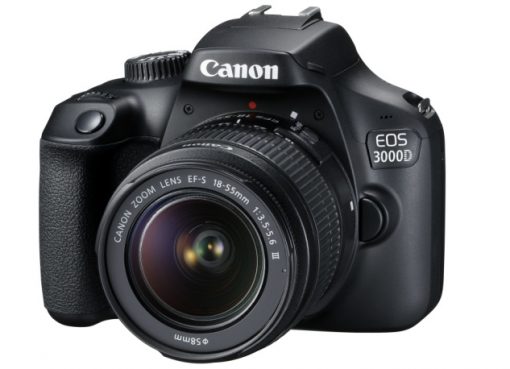The fight between AMD and its competitor has always been fierce, but it’s AMD that has excelled in the past few years. The company has a larger share in the market today according to Passmark, a success it hasn’t seen in 14 years. AMD processors are more popular than ever, and it looks like they have no plans to slow down. AMD grabbed everyone’s attention after they debuted the new Ryzen 4000 series processors at CES 2020. Laptops have always been slower than PCs as they sport toned downed components and thermal limitations. However, the new Ryzen 4000 CPUs claim to change the fundamental of laptop computing.
Every year, AMD debuts a new series of processors. Their events boast how faster and better their new processors are, and obviously, the competition. Let’s take the example of the AMD Ryzen 2200U CPU which was launched in 2018. The processor comes with 4 cores and has a base clock speed of 2.5GHz. It also sports 4 GPU cores for handling graphics. If you compare it with the 2019 Ryzen 3300U model, the technical differences are minimal. The 3300U has the same number of cores and base clock speed. The newer model only gets 2 additional GPU cores, which improve graphics performance. To find the overall performance difference, we compared both the CPU scores on UserBenchmark. The scores indicated that the Ryzen 3300U was 27 per cent faster than its predecessor. A 27 per cent performance bump is a good score which will bring decent performance improvements such as better video encoding and smoother internet browsing. The AMD 4000 Series processors, to give you context are 56 per cent faster than older CPUs, which means the performances changes are likely to be be significant.
To find the overall performance difference, we compared both the CPU scores on UserBenchmark. The scores indicated that the Ryzen 3300U was 27 per cent faster than its predecessor. A 27 per cent performance bump is a good score which will bring decent performance improvements such as better video encoding and smoother internet browsing. The AMD 4000 Series processors, to give you context are 56 per cent faster than older CPUs, which means the performances changes are likely to be be significant.
Most of us might hesitate to believe manufactures numbers, but these claims are more believable due to the new processor’s technical specifications. The Ryzen 4000 CPUs are constructed using a 7nm architecture, so it is significantly smaller in size. Smaller transistors are more power-efficient and can do more calculations without getting hot. Additionally, the top-end Ryzen 4000 series CPUs are the only mobile processors in the world to sport 8 cores. This should make them perform significantly faster than the older generation. AMD also claims the new CPUs will be far more power-efficient, which means they are likely to deliver longer battery life.
| Model No | Ryzen 3 4300U | Ryzen 5 4500U | Ryzen 5 4600U | Ryzen 7 4700U | Ryzen 7 4800U | Ryzen 5 4600H | Ryzen 7 4800H | Ryzen 9 4900HS | Ryzen 9 4900H |
| Graphics | AMD Radeon | AMD Radeon | AMD Radeon | AMD Radeon | AMD Radeon | AMD Radeon | AMD Radeon | AMD Radeon | AMD Radeon |
| No. of cores | 4 | 6 | 6 | 8 | 8 | 6 | 8 | 8 | 8 |
| No. of threads | 4 | 6 | 12 | 8 | 16 | 12 | 16 | 16 | 16 |
| Max boost clock | 3.7Gz | 4.0GHz | 4.0GHz | 4.1GHz | 4.2GHz | 4.0GHz | 4.1GHz | 4.3GHz | 4.4GHz |
| Base Clock | 2.7GHz | 2.3GHz | 2.1GHz | 2.0GHz | 1.8GHz | 3.0GHz | 2.9GHz | 3.0GHz | 3.3GHz |
| Default TDP | 15W | 15W | 15W | 15W | 15W | 45W | 45W | 45W | 45W |
There are only a few laptop OEMs who have adapted AMD processors so far. Most of these are entry or mid-range laptops aimed at budget-oriented buyers. You will barely find a gaming or a high-performance laptop with an AMD processor these days. The new Ryzen 4000 series processors are likely to change that. The new Ryzen 4000 series processors are powerful and energy efficient. Laptop manufactures can take advantage of this, to deliver PC-like performance in a laptop and great battery life. In fact, Lenovo recently announced a range of ThinkPad laptops sporting AMD’s Ryzen 4000 CPUs. Asus announced their new TUF gaming laptops will sport AMD’s Ryzen 4000 series CPUs.

We haven’t got a chance to get our hands on a Ryzen 4000 series laptop yet. The Ryzen 3 4300U CPU will likely make its way to entry-level laptops which should make them powerful than before. This means, we might see laptops priced between Rs. 25,000 and Rs. 35,000 performing smoother video streaming, internet browsing and stutter-free multitasking. However, the CPUs which should bring changes in laptop computing are the mid-range Ryzen 5 4500U and 4600U. These CPUs come with 6 cores, which were previously only seen in expensive gaming laptops. Laptops OEMs are likely to pair these processors with mid-range laptops.
Portable laptops have offered solid CPU performance in the past, but they couldn’t compare to gaming laptops. AMD wants to bring a change in this segment. The company is trying to pair the newer Ryzen 7 4700U and 4800U processors with ultraportable laptops. These 8-core processors also come with Radeon RX Vega 8 integrated graphics card. Ultraportable laptops were never good at gaming, but a combination of a powerful CPU and a decent integrated GPU should make them better at handling mid-range games.

All the newer Ryzen 4000 U-series processors come with a 15W TDP (thermal design power) limit, to maintain power efficiency. However, limiting power also compromises performance. If you are looking for uncompromised gaming, content creation and video streaming performance, AMD’s 4000 H and HS series processors should be the ones to keep your eyes on. These processors come with 35W TDP configurations to deliver desktop-like performance. AMD is likely to pair these 8-core processors with high-end gaming laptops.
AMD’s new advancements have made the Ryzen 4000 series processors much more powerful and energy-efficient. There are few options available right now, but we are likely to see more and more laptops with AMD’s Ryzen 4000 series processors soon. To keep yourself updated with the latest tech, and to shop for the latest laptops, keep following us on www.reliancedigital.in



